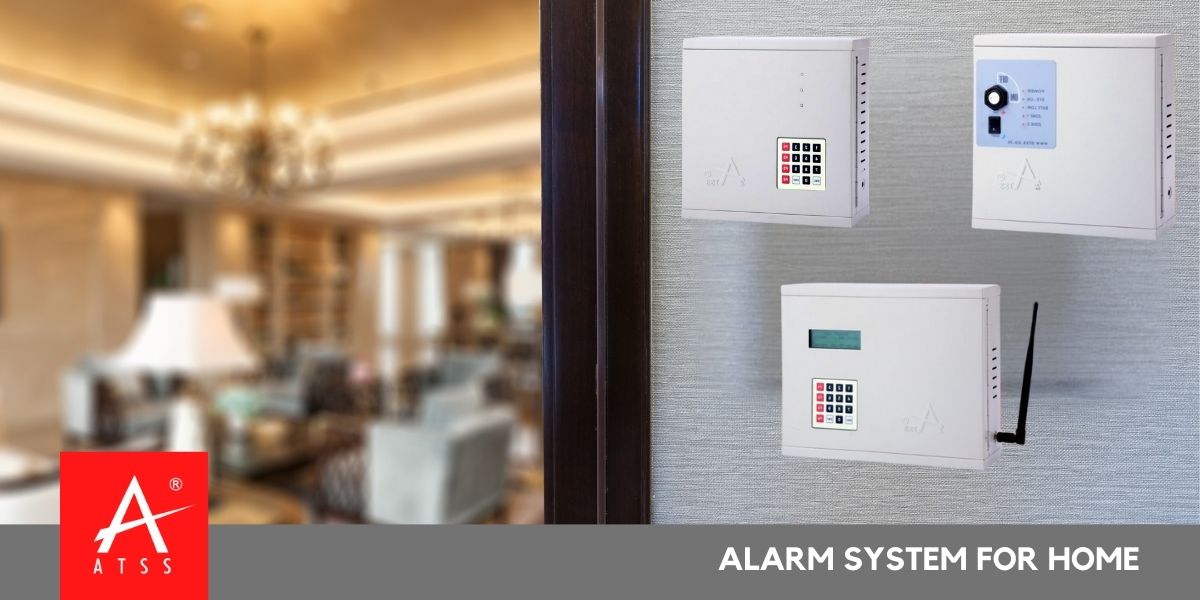ALARM SYSTEM FOR HOME
Home security is a top priority for homeowners and renters alike. With crime rates fluctuating and the increasing demand for smart security, investing in an alarm system for home is no longer a luxury but a necessity. This comprehensive guide will walk you through everything you need to know about home alarm systems—from types and costs to installation and smart features—so you can make an informed decision.
1. What is an Alarm System for Home?
An alarm system for home is a security setup designed to detect unauthorized entry, fire, or other emergencies. It typically includes motion sensors, cameras, alarms, and professional monitoring services.
Key Components:
- Control Panel – The central hub controlling all connected devices.
- Sensors – Detects motion, glass breakage, or door/window entry.
- Security Cameras – Provide live video surveillance.
- Alarms & Sirens – Triggered by unauthorized access.
- Professional Monitoring – Notifies authorities in case of emergencies.
2. Why Do You Need a Home Alarm System?
Key Benefits:
✅ Prevents Break-ins – Homes with alarm systems are 300% less likely to be burglarized. ✅ Lowers Insurance Costs – Many providers offer discounts for secure homes. ✅ Remote Monitoring – Control security from your smartphone. ✅ Emergency Response – Connects directly to law enforcement or fire departments. ✅ Smart Home Integration – Works with Alexa, Google Assistant, and other devices.
3. Types of Home Alarm Systems
1. Wired Alarm Systems
- Hardwired into the home’s electrical system.
- More stable but requires professional installation.
2. Wireless Alarm Systems
- Uses WiFi or cellular connections.
- Easier to install and relocate.
3. Monitored Alarm Systems
- 24/7 surveillance by a security company.
- Alerts authorities in case of a breach.
4. Unmonitored Alarm Systems
- No monthly fees, but relies on sirens or self-monitoring.
5. Smart Home Security Systems
- Syncs with smart devices for enhanced automation.
- Allows remote access and control via apps.
4. How Much Does a Home Alarm System Cost?
| Security System Type | Initial Cost (INR) | Monthly Fees (INR) | Installation |
|---|---|---|---|
| DIY Security System | ₹8,300 – ₹33,200 | ₹0 – ₹1,660 | Self-install |
| Professional Security System | ₹41,500 – ₹1,24,500 | ₹2,490 – ₹4,980 | Professional |
| Smart Home Security | ₹16,600 – ₹66,400 | ₹830 – ₹4,150 | Self or Pro |
| Wireless Security System | ₹12,450 – ₹49,800 | ₹1,660 – ₹4,150 | Self-install |
Hidden Costs: Maintenance, upgrades, false alarm fines.
5. How to Choose the Best Home Alarm System?
Factors to Consider:
✔ Home Size & Layout – Larger homes need more sensors and cameras. ✔ Budget – Consider both upfront costs and monthly fees. ✔ Monitoring Options – Professional vs. self-monitoring. ✔ Smart Home Compatibility – Works with Alexa, Google Home, etc. ✔ Ease of Installation – DIY vs. professional setup. ✔ Customer Reviews & Ratings – Ensure reliability and performance.
6. Wired vs. Wireless Alarm Systems: Which One is Better?
| Feature | Wired System | Wireless System |
|---|---|---|
| Installation | Professional | DIY or Pro |
| Reliability | High | Dependent on WiFi/Cellular |
| Portability | Fixed | Easy to move |
| Smart Features | Limited | Advanced |
| Cost | Higher upfront | Lower upfront |
Best For:
- Wired: Permanent homes needing robust security.
- Wireless: Renters or homeowners wanting flexibility.
7. Can I Install a Home Security System Myself?
Yes! Many modern systems are designed for DIY installation. Here’s how:
- Choose a DIY-Friendly System – SimpliSafe, Ring, or Wyze.
- Place Sensors & Cameras – Follow manufacturer guidelines.
- Connect to WiFi – Ensure a stable connection.
- Test the System – Verify all sensors and alarms work properly.
- Enable Monitoring – Set up self or professional monitoring.
When to Hire a Pro: If you prefer wired systems, advanced automation, or professional monitoring.
8. Smart Features of Home Security Systems
1. Voice Control:
- Works with Alexa, Google Assistant, and Siri.
- Arm/disarm alarms with voice commands.
2. Mobile App Monitoring:
- View live camera feeds remotely.
- Receive instant security alerts.
3. Motion Detection & AI Recognition:
- Differentiates between pets and intruders.
4. Integration with Smart Locks & Lights:
- Automate security routines for better protection.
9. Do You Need Professional Monitoring?
| Feature | Self-Monitoring | Professional Monitoring |
|---|---|---|
| Cost | Free or low-cost | Monthly fees required |
| Response Time | Dependent on user | Immediate professional response |
| Emergency Handling | Manual call to authorities | Automatic dispatch |
| Ideal For | Low-risk areas | High-security needs |
If you want 24/7 monitoring and immediate emergency response, professional monitoring is the best choice.
Conclusion
Investing in an alarm system for home enhances safety, deters intruders, and provides peace of mind. Whether you choose a wired or wireless, DIY or professional, or a smart security system, selecting the right one depends on your budget, home size, and security needs.
If you’re ready to secure your home, explore top-rated alarm systems today and take the first step toward a safer future! 🚀 CALL 9150012345

